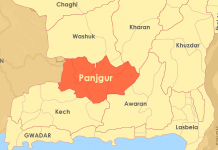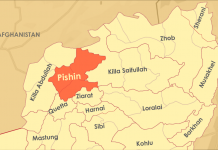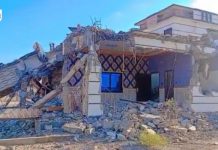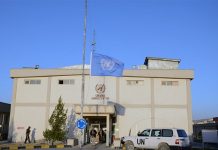The China-Pakistan Economic Corridor (CPEC) project in Balochistan is producing a heavily militarized zone, displacing locals and depriving them of economic lifelines, while in Sindh’s Tharparkar district, coal-based CPEC power projects are damaging the environment and displacing locals from their homes, said International Crisis Group (ICG) in its latest report.
ICG, an international think tank, in its report on ‘China-Pakistan Economic Corridor- Opportunities and Risks’ has said that the project has several issues that need to be addressed on priority by the Pakistani government to ensure that new areas of conflict do not emerge out of it.
It also mentioned that Pakistan government should stop arrests, harassment and other coercion of critics of the project, and consult all stakeholders. It added that the CPEC has the potential to deepen friction between the federal center and periphery, roil provinces, widen social divides, and create new sources of conflict in Pakistan.
“Balochistan will receive no direct financial benefits from Gwadar Port, a key CPEC project, which means local anger at Islamabad is likely to intensify. Instead of developing a sleepy fishing village into a bustling commercial hub as pledged by Islamabad and Beijing, the project is producing a heavily militarized zone, displacing locals and depriving them of economic lifelines. In Sindh’s Tharparkar district, coal-based CPEC power projects are not only damaging the environment, but are also displacing locals from their homes and could destroy livelihoods,” the report said.
Keeping in view the protests by the locals, the report suggested that the Pakistani authorities should consult extensively with local communities about the potential costs and benefits of major development projects and devise an appropriate compensation and resettlement plan for all those displaced. This includes not just formal land owners but also those with the informal land ownership common across Pakistan. It said, if needed, Pakistani parliament should consider relevant reforms to its 1894 Land Acquisition Act. It suggested provisions should be made to hire local labour and ensure that CPEC projects apply labour protections and practices.
In a recent exclusive interview with The Balochistan Post (TBP), a famous Baloch leader and senior commander of Baloch Liberation Army, Aslam Baloch, had said CPEC is not only a threat to the region’s peace but also to the very existence of Baloch nation. “In order to counter this threat, joint-struggle and alliance between different Baloch resistance forces is need of the time. Baloch forces are devising a plan and there is strong consensus between Baloch Liberation Army and Baloch Liberation Front in this regard,” he had told TBP.
Prominent Baloch leader and head of Balochistan Liberation Front (BLF), Dr. Allah Nazar, had said in a recent video message that Baloch will defeat China and Pakistan. He said our struggle is an indigenous one. This is a war against China and other foreign countries and their investors. Baloch is a living nation. If China is hoping to establish a naval base to crush us, it must realize what they themselves have gone through when Japan invaded China. What tactics it used to counter the Japanese aggression? We are living in the twenty first century and we will come with harsher stratagem against China as well. Today Pakistan is in a state of utter confusion that how its army is being targeted.
Another Baloch leader and Chairman of Baloch National Movement, Khaleel Baloch, in an exclusive interview had told TBP, that Baloch will never let CPEC to succeed. China has so far failed to invest openly in these projects. “CPEC project is not an economic project. It will be used for China’s military dominance in the region. China is building a naval base here to prove its military supremacy against India and the world powers. However, this project will not succeed without Baloch nation’s consent. Baloch nation will resist hardly against CPEC as it is a matter of life-and-death for us,” he had told TBP in the interview.
Similar views were expressed by a senior Baloch Republican Army commander, Gulzar Imam Baloch. In an exclusive interview with TBP he had said: “Baloch are continuously resisting against CPEC. With death and destruction, China and Pakistan might be able to complete this project but they will not be able to guarantee peace for it without Baloch nation’s consent.”
Commander Gulzar Imam had said in his interview that Baloch nation is fighting a successful war against both China and Pakistan simultaneously, due to which foreign investors are avoiding investment in these projects. However, he had agreed that Baloch forces need to consolidate their resources if they want to fully halt CPEC project.
The ICG report said that both Islamabad and Beijing should implement CPEC with considerably more sensitivity and consultation than they have displayed thus far, with provinces and the communities most affected given a greater voice in shaping CPEC projects.
Despite the successive Pakistani governments projecting CPEC as a leap forward both in relations with China and for the country’s economic development, some high-level officials and prominent voices in Pakistani business have expressed concerns about the failure to protect local economic interests, high guaranteed returns on equity to Chinese investors and national debt that is not affordable, the ICG observed.
“While it is too early to assess if CPEC can deliver the economic gains Islamabad promises, the project risks inflaming longstanding tensions between the center and smaller federal units and within provinces over inequitable economic development and resource distribution. Less-developed federal units such as Balochistan and Sindh contend that the corridor’s route, infrastructure, and industrial projects will mostly benefit Punjab,” the report said.






























